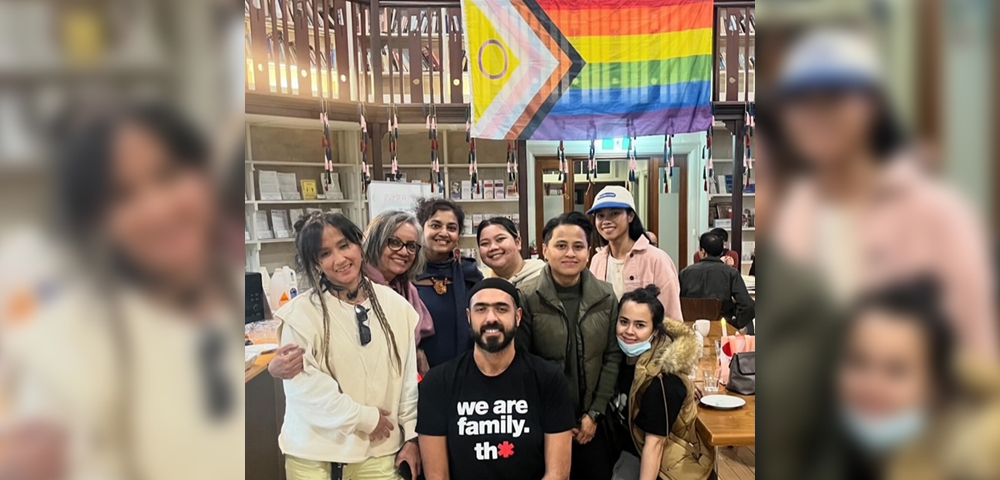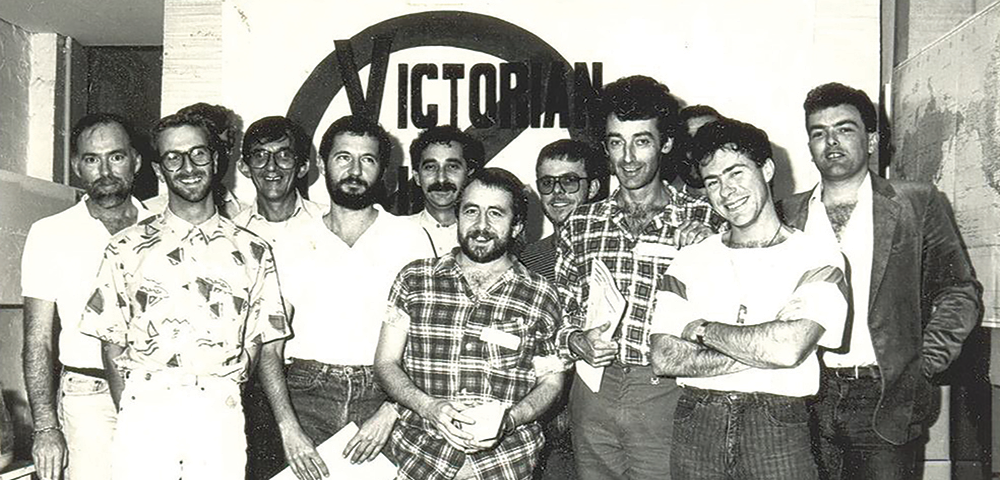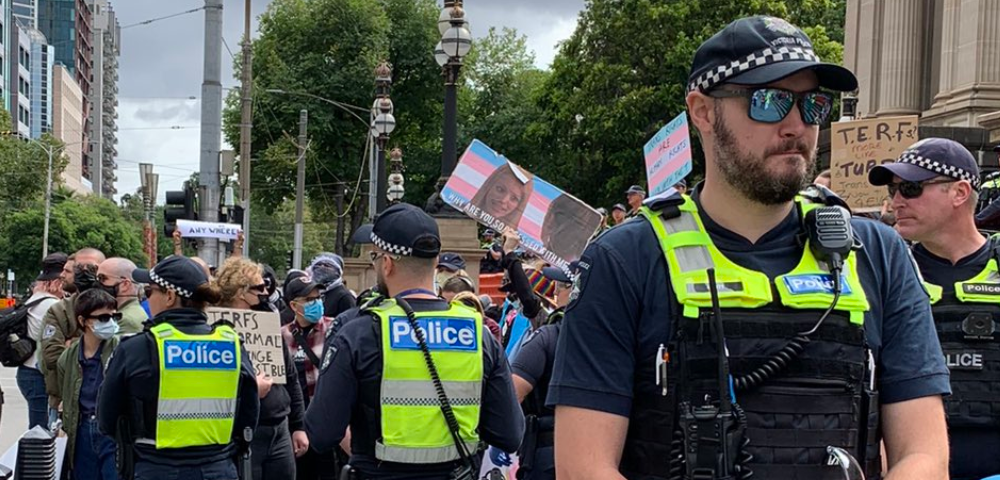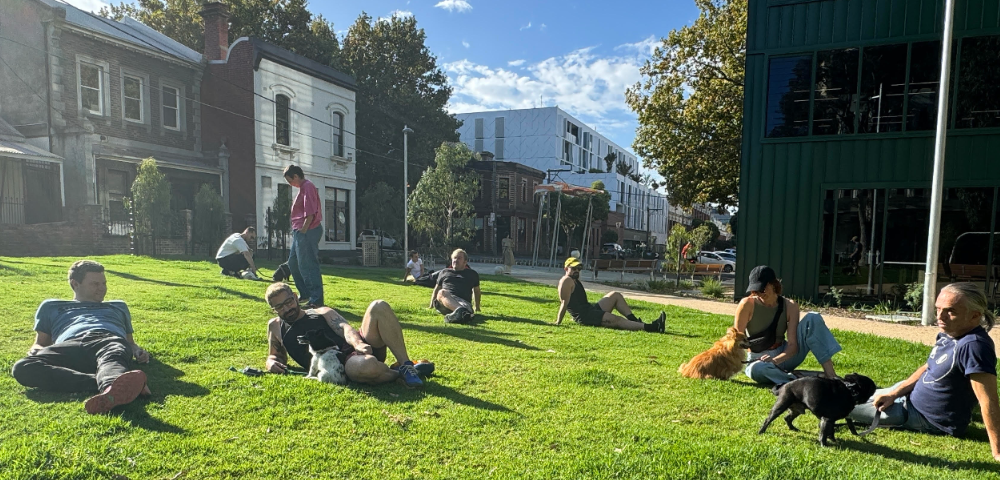
Playing politics with ‘I do’
There comes a time when you decide the person you snuggle up to every night is the one you want to spend the rest of your life with.
For heterosexual couples the next step is a fairly smooth and time-honoured path to tying the knot. Whether pumpkin coach or backyard barbie, the union is not questioned in the eyes of the law.
For same-sex couples the road is highly politically charged -” a simple declaration of love is turned into a big messy struggle for equality.
Despite making relationship equality headway in some states, many are lagging on the issue, and those gay marriage placards are still waving furiously. State laws for same-sex couples are far from consistent, with the ACT, Tasmania and Victoria leading the way with official relationship registers affording same-sex couples the same legal status as married couples, only without the ceremony.
Federal Attorney-General Robert McClelland has recently acknowledged the discordance, saying state relationship laws should be harmonised across the country, however, it’s up to the states to do so.
-œWe also note that the landmark HREOC report Same-Sex: Same Entitlements found that while there was absolute consensus in the gay and lesbian community that same-sex couples should be recognised equally, there was not consensus that marriage was the most appropriate way to achieve this, in McClelland said in a statement last May.
The statement was made with eyes fixed on the ACT after the government forced the territory to drop ceremonial aspects that -œmimic marriage from its civil union scheme.
In 2004 both the ALP and the Coalition voted in favour of the Marriage Amendment Act to redefine marriage as a union between -œa man and a woman to the exclusion of all others. This includes recognition of marriages conducted overseas.
With last year’s changes to Commonwealth legislation, same-sex couples are now considered de facto partners, effectively removing discrimination from around 100 federal laws.
The rather unromantic reason state-based relationship registration is important for same-sex couples is that it provides proof of relationship under state laws, much the same way as a marriage licence. The problem is, it depends which state you’re in.
Victoria
Last year was a significant year for Victorians with the Relationships Register finally in place in December.
The register gives same-sex couples the same legal rights afforded to married couples, with couples only having to show their registration certificate to definitively prove their relationship exists.
Although rights groups were disappointed that no ceremonial aspects were included in the Act, Victoria is one of the leaders in same-sex relationship rights.
Although same-sex relationships are viewed in all Australian states and territories as de facto when applied to the law, the Victorian relationship register, like Tasmania and the ACT, provides conclusive proof of that relationship.
Under Victorian law, for instance, this includes the right to discuss a partner’s medical information with a doctor in an emergency situation or to seek partner compensation entitlements.
South Australia
South Australia is dawdling when it comes to same-sex equality. Lesbians and single women are still banned from access to IVF.
The state has a Domestic Partner (Agreement) which recognises a legal relationship between two people who share a domestic life. Although the agreement can be used to prove the existence of a relationship, it does not afford the same status as marriage or a civil union.
Australian Capital Territory
The ACT has been in the eye of the storm of same-sex relationship recognition in this country, taking on the weight of the federal government and being forced to backpedal on plans to extend same-sex relationship rights.
Twice the federal government has come down hard on the ACT government’s plans to include ceremonial aspects of its civil union scheme in the legislation.
A battle-weary ACT government was forced to backed down and there is no provision for a ceremony for same-sex couples in the Act.
The civil union scheme now allows for an -œadministrative ceremony, however, the ceremony itself is not legally binding.
-œGiven the stubborn refusal of the Federal Government to consider any compromise, the territory has decided to amend its legislation to provide for a form of civil partnerships without ceremony, ACT Attorney-General, Simon Corbell said.
According to the law, only one partner needs to reside in the ACT to get a civil partnership.
Tasmania
Tasmania was the first state to introduce an official civil union scheme, in 2004. There are currently 100 significant same-sex relationships registered.
Local advocates hail it as one of the most advanced schemes in the world, for the breadth of relationships recognised, including intimate and non-sexual -œcaring relationships.
Couples enter into a Deed of Relationship with the state’s Registry of Birth, Deaths and Marriages and are given virtually the same rights as married couples in law.
Both parties must reside in Tasmania to register.
The Tasmania register basically allows any two people who want their relationship protected legally to do so.
Queensland
Although same-sex couples are considered de facto in Queensland, the state does not yet have a formal relationship register.
Although there have been rumblings within the Bligh Government in favour of a civil union scheme, Queensland rights advocates are still waiting to hear from the state’s Attorney-General’s office.
At last year’s Standing Committee for Attorneys-General meeting, the Queensland government indicated support for putting in place state-based schemes to harmonise same-sex relationship laws.
A Galaxy poll conducted in December last year showed 60 percent of people in Queensland supported civil unions with 54 percent supporting gay marriage.
New South Wales
It is surprising NSW has not yet developed a statewide civil union scheme, although via council jurisdiction, the City of Sydney provides a relationship register which residents from across the state have access to.
The City of Sydney Relationships Declaration program is a means of recognising the partnership status of both same-sex and opposite-sex couples.
The declaration does not change the legal status of a couple in the way a marriage does, nor does it have the weight of a civil union.
It allows couples to make a written declaration that they are in a relationship which can be used as evidence for legal purposes.
Couples also have the option of holding a ceremony to celebrate their declaration.
Last June, the NSW parliament passed the Miscellaneous Acts Amendment (Same-Sex Relationships) Bill 2008 which recognises non-biological mothers as legal parents of children born through donor insemination, allowing both women’s names on the birth certificate.
Other amendments ensure same-sex couples are treated equally with married couples. Without a civil union scheme, however, the onus is on the couples to prove their status.
Northern Territory and Western Australia
The Northern Territory defines same-sex couples as de facto.
In 2003 discrimination against same-sex couples was removed from most areas of the territory’s law, including enabling non-biological mothers to be recognised as a child’s parent. The territory, doesn’t however have an official register.
Like the NT, Western Australia is yet to introduce a relationship register, although it leads the way over other states in surrogacy laws. In 2002 the state voted to remove discriminatory legislation and to define same-sex couples as de facto.









